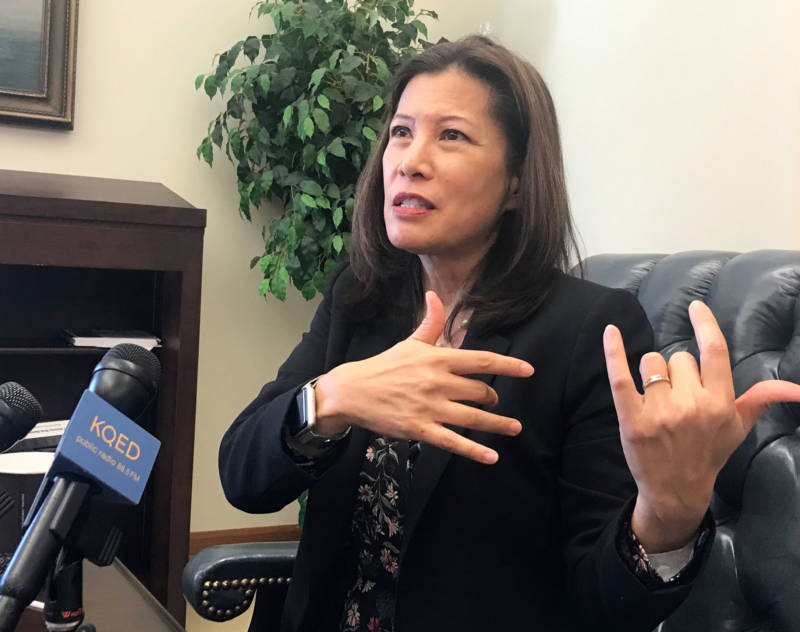The chief justice of California's Supreme Court loves the people Gov. Jerry Brown has appointed as judges across the state — but she's hoping his replacement, Gavin Newsom, will take a kinder eye to the court system at budget time.
"I met with the governor-elect on several occasions, and we have talked generally," said Tani Cantil-Sakauye, adding "as you know the new governor's father (William Newsom) is a former appeals court justice. And so we hope that we will have home-field support."
Gavin Newsom is a businessman, not a lawyer like Jerry Brown, who never seemed especially sympathetic to the chief justice's pleas to restore funds cut during the recession.
Referring to Gov. Brown's first few budgets, she said "in the Great Recession the branch was cut numerous times, over and over, oftentimes mid-year. We had no ability to plan. We had no ability to attempt to serve those who were already in our court system — not to mention those who were coming in at a time when foreclosures were high and unemployment was high."
In a wide-ranging session with reporters Tuesday morning, Cantil-Sakauye said what she's hoping for in the Newsom administration is financial certainty.
